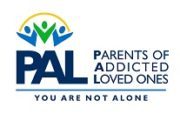Much has been written on the subject since Melody Beattie’s groundbreaking book, Codependent No More. It is a word that has entered into the vernacular of our culture and is often misconstrued and misapplied. Below is an outline of some of the basic elements of codependency. Hopefully, you will find it helpful.
Clarifying the Issue
- Codependency is complex.
- Codependency is a negative coping strategy.
- Codependency is an addiction to people with problems.
Codependents endeavor to rescue people with problems from the consequences of poor choices but end up being driven by the need to control others. They thereby avoid their own pain with the hope of gaining approval and love. Codependents confuse approval and being needed with love.
Characteristics of Codependency
- Codependents compulsively seek approval. There is:
- An intense need for approval leading to a compulsive need to please
- A need to do for others in order to please and thereby gain approval and love
- A change in focus from themselves to the codependent partner to avoid acknowledging their own personal shame and insecurities
- An inability to tell the difference between love and the need to gain others’ approval
Codependents compulsively need to control to the point of:
- Becoming obsessed with managing and manipulating the other’s behaviors
- Needing to manage their image (i.e. control how others view them both externally (having it together) and how they view themselves internally (self-doubt and insecurity)
- Making irrational demands on others to “test” loyalty
- Confusing love with control, believing their “help” is loving
- Creating dependence and resulting in resentment (relationships cannot thrive in manipulative environments; love allows freedom and personal responsibility)
Codependents compulsively rescue by:
- Compulsively intervening on behalf of others; will often “anticipate” others’ needs
- Creating an obligation to love them back
- Confusing caretaking (rescuing) with caregiving
- Caretaking is doing for others what they can or need to do for themselves
- Caregiving is doing for others what can’t be done for themselves
- Seeking personal fulfillment at expense of others (by violating their freedom and undermining their growth). This leads to burnout from exhaustion and neglecting their own pain. Codependents become angry and resentful
Codependents become enmeshed
- Their identity becomes blurred with the line between who they are and what they do
- They feel personally responsible for others’ actions or failures–adopt god-like attitudes
- They remedy failure with more control
- They become comfortable focusing on others and thereby lose a sense of self
- They find that life is no longer enjoyable and worry and fear dominate
Codependents are reactionary
- Coercing and provoking others into submission (through guilt, withholding, nagging)
- Increasing their codependent behavior in the face of increased autonomy by the one they seek to control
- Their behavior is lethal and passed on as a coping mechanism
Codependents are driven by denial
- Their image is more important than reality (their mask and role hides their empty reality)
- They engage in constant rationalization and avoidance (“If I don’t help, something terrible will happen and I will have failed, and therefore I’m unlovable.”)
- Due to importance of image, they will tend to block constructive criticism
Take time to consider the above characteristics in thinking and acting. Make an honest assessment of where your thoughts and actions have mirrored codependency. If you’re feeling brave, ask others for feedback. Remember, we can all demonstrate codependent qualities from time to time in our relationships. It’s valuable to recognize them and work to eliminate these destructive patterns. As mentioned earlier, relationships cannot thrive in manipulative and controlling environments. Love, on the other hand, allows the freedom to choose, insists on personal responsibility, and creates an opportunity for real growth and deep change.
On the journey with you, Ron Ron Paterik is a practicing psychotherapist in Phoenix, Arizona with over 20 years’ experience. He is a licensed Independent Substance Abuse Counselor and also a Whole Life Leadership Mentor at Grand Canyon Counseling. You can read, comment and ask questions for Ron to address in his blog on the PAL website, Home page – www.Palgroup.org

Trackbacks/Pings